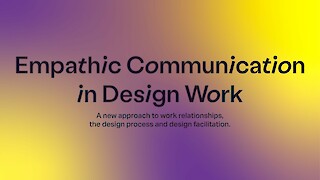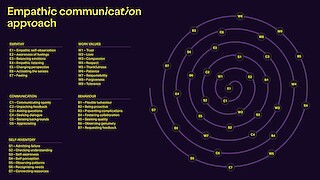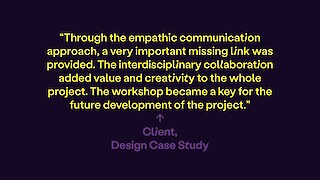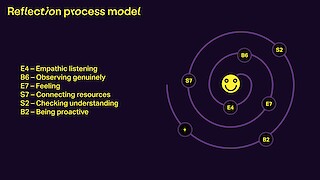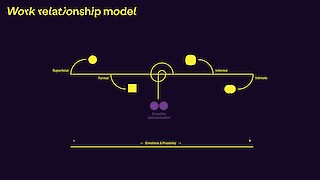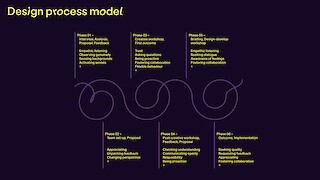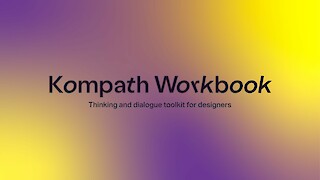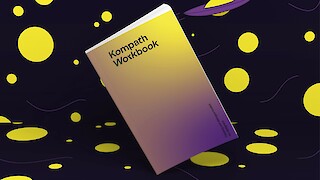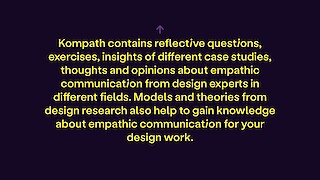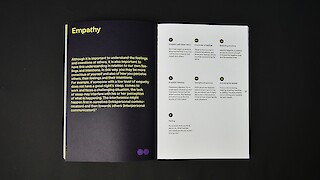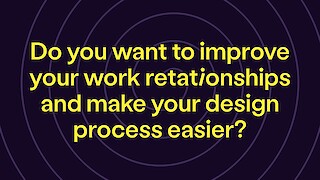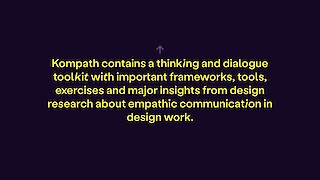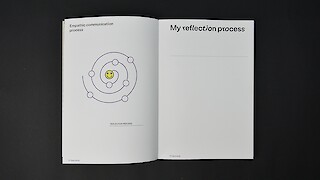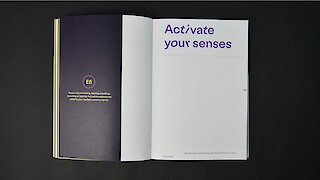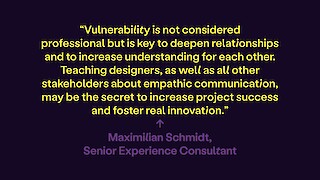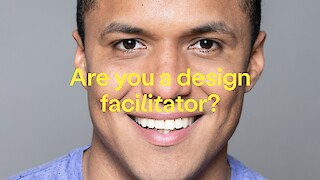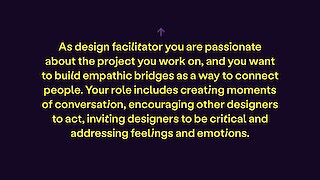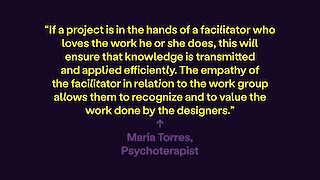[EN]
A new approach to work relationships, the design process and design facilitation
For designers, the ability to empathise is not part of the job requirement and our communication skills are often taken for granted. The understanding of both empathy and communication and how they affect work relationships and the design process remains largely absent from the field of design. When it comes to design processes, the emphasis often falls more on delivering a product and less on the relationships among the ones creating it. Designers must fulfil important tasks in the workplace and manage relationships with clients, designers and non-designers, which can potentially create friction.
Humans are emotional beings and our feelings and intentions are thus present in all our interactions. So it is not possible to completely shut down our emotions while working. But expressing them is still considered unprofessional. In this project, I outline how existing and new knowledge about empathic communication can be used in the design workplace as an attitude to approach and improve work relationships and the design process. I also created a set of communication and reflection exercises for designers to use in their interactions during the design process.
As a result, I propose Kompath, a workbook and toolkit that helps designers communicate their feelings and intentions while enhancing professionalism. The workbook is meant for designers to record their answers, thoughts and reflections when going through the exercises and information presented. Designers, with guidance from a design facilitator, will be able to participate in workshops to gain knowledge about empathic communication. This will help designers move towards more balanced work relationships and makes the design process easier. I argue that this approach has a positive effect on the work and creates a new role for designers as facilitators.
[DE]
Eine neue Herangehensweise an Arbeitsbeziehungen, den Designprozess und dessen Moderation
Empathie gehört nicht zur Stellenbeschreibung von Designerinnen und Designern, und unsere Kommunikationsfähigkeiten werden oft als selbstverständlich angenommen. Das Verständnis für Empathie und Kommunikation und deren Einfluss auf Arbeitsbeziehungen und den Designprozess ist im Designbereich kaum vorhanden. Geht es um Designprozesse, liegt der Fokus oft stärker auf dem Produkt als Resultat als auf der Beziehung zwischen den Menschen, die es erschaffen. Designer müssen jedoch am Arbeitsplatz wichtige Aufgaben erfüllen und Beziehungen mit Kundinnen und Kunden und zwischen Designerinnen und Fachfremden pflegen, was zu Spannungen führen kann.
Menschen sind emotionale Wesen, unsere Gefühle und Absichten spielen folglich in all unseren Interaktionen eine Rolle. Es ist unmöglich, unsere Emotionen bei der Arbeit vollständig auszuschalten. Sie zu zeigen gilt jedoch noch immer als unprofessionell. In diesem Projekt umreisse ich, wie bestehendes und neues Wissen über empathische Kommunikation am Designarbeitsplatz als Haltung eingesetzt werden kann, um Arbeitsbeziehungen und den Designprozess zu verbessern. Ich habe zudem eine Reihe von Kommunikations- und Reflexionsübungen ausgearbeitet, die Designerinnen und Designer in ihren Interaktionen während des Designprozesses anwenden können.
Das Resultat heisst «Kompath», ein Arbeitsbuch und Werkzeug, das Designerinnen hilft, ihre Gefühle und Absichten zu kommunizieren und gleichzeitig ihre Professionalität zu steigern. Im Arbeitsbuch sollen die Designer ihre Antworten, Gedanken und Reflexionen aufzeichnen, wenn sie die darin enthaltenen Übungen und Informationen durchgehen. Designerinnen können, angeleitet von einer Designmoderatorin oder einem Designmoderator, an Workshops teilnehmen und sich Wissen über empathische Kommunikation aneignen. Dieses hilft ihnen, ausgeglichenere Arbeitsbeziehungen aufzubauen, und erleichtert den Designprozess. Ich bin überzeugt, dass dieser Ansatz einen positive Effekt auf die Arbeit hat und eine neue Rolle für Designer als Mittler schafft.
Antonio Herrera
MA-Diplom 2020
Mentorat Prof. Dr. Sarah Owens, Stefano Vannotti
Editorial Design
